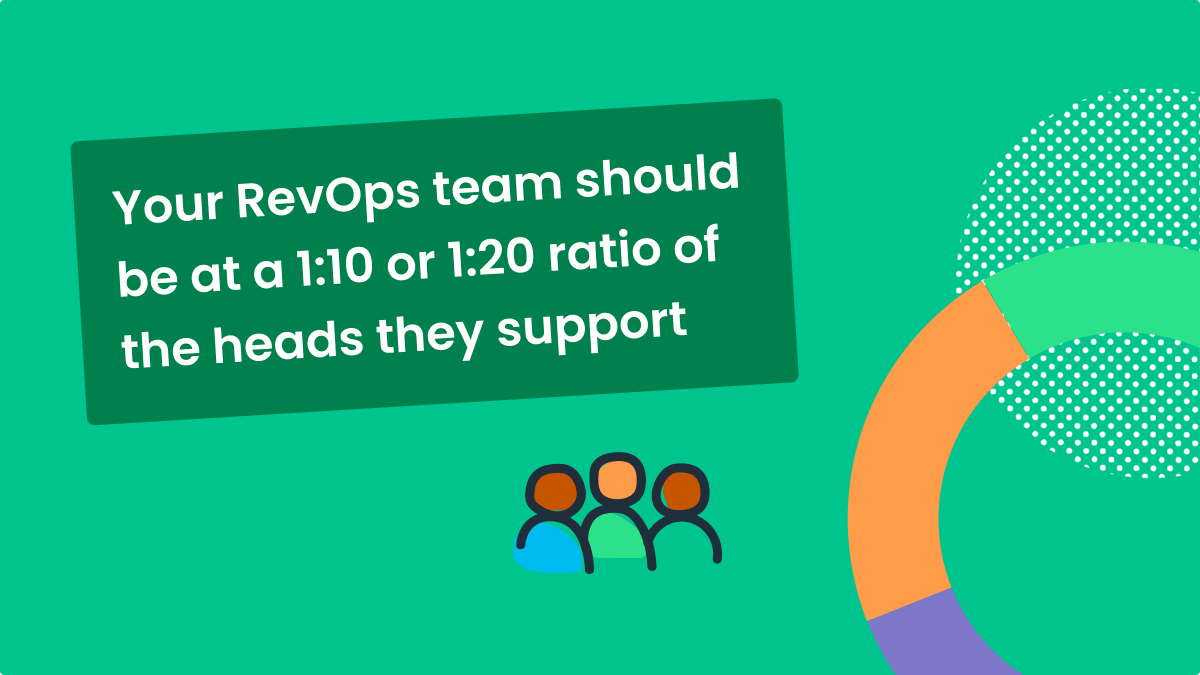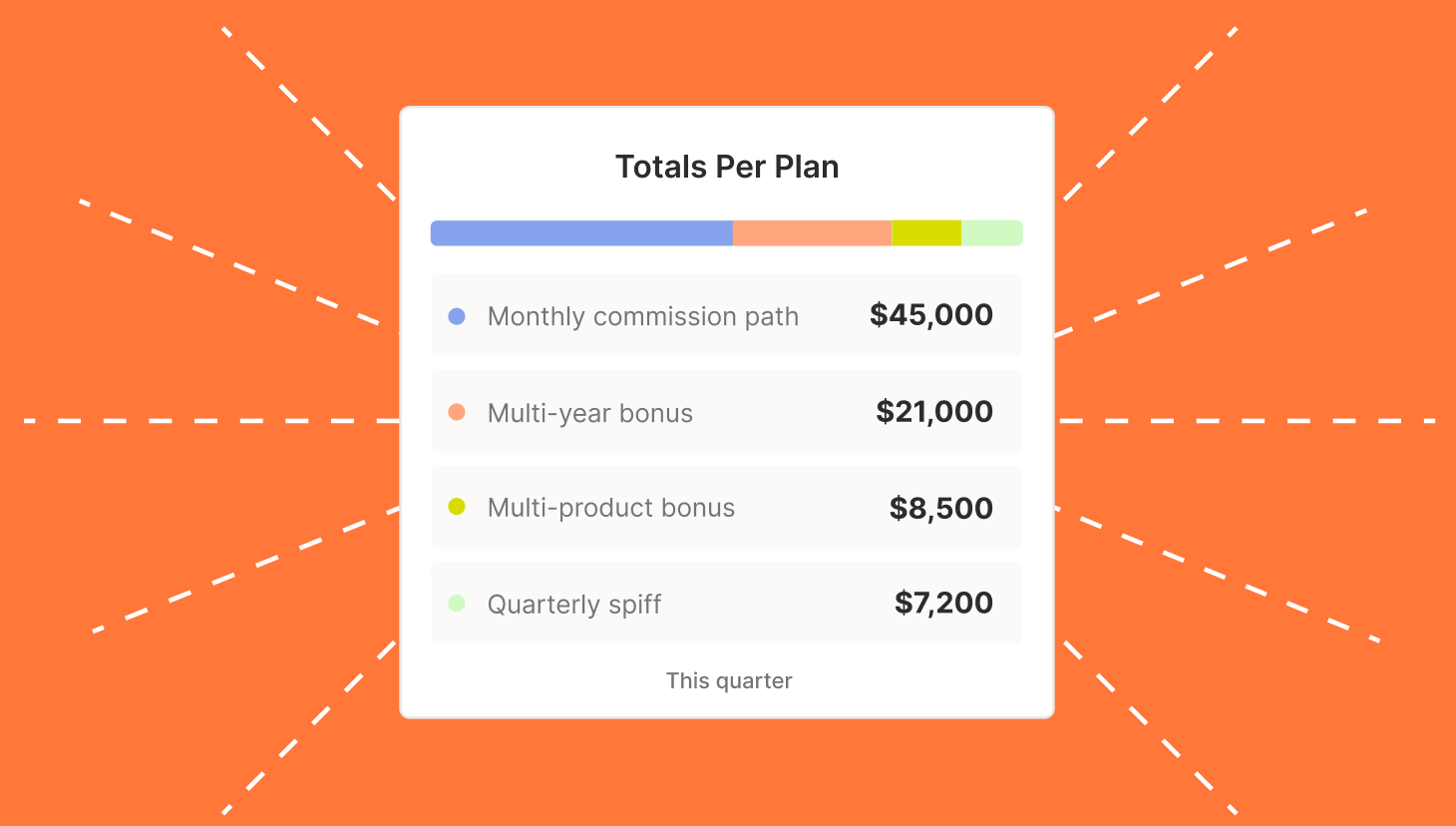Forbes has dubbed RevOps the fastest-growing job in America, “because growing a business in 2023 is a digital, data-driven, and technology-enabled team sport.”
A failure to unify and align the operations, systems, and data that support revenue teams can lead to poor customer experiences, high selling costs, leaky revenue forecasts, and untapped customer expansion potential.
That’s why 90% of organizations are actively changing the way they lead and align revenue teams. Plus, sales processes have moved from simple transactions to streams of consumable services and subscriptions.
This shift has created the need for RevOps which is now considered essential to business growth into the next decade.
So, for those representing RevOps Teams of one, how do you know when it’s time to expand your team?
Try QuotaPath for free
Try the most collaborative solution to manage, track and payout variable compensation. Calculate commissions and pay your team accurately, and on time.
Start TrialIndicators that your RevOps teams should grow
Although every business is different, these are some common signs of RevOps growing pains. When you see these symptoms, it’s time to expand your RevOps team.
- Your company is growing rapidly. If your company is growing at a rapid pace, your RevOps team may not be able to keep up with the demand. This is a sign that you need to add more people to your team to handle the workload.
- Your team is struggling to meet its goals. If your RevOps team is consistently struggling to achieve its goals, this could indicate that you need to add more resources to the team through new hires or tools, or both.
- You’re facing new challenges. If your company is experiencing new challenges, such as entering a new market or launching a new product, your RevOps team may need to grow to meet the new demands.
- You’re looking to improve efficiency. If you’re striving to increase the efficiency of your RevOps team, you may need to add headcount. This will allow you to divide up tasks and create more specialized roles.
It’s important to note that there is no one-size-fits-all answer to this question.
The best time to grow your RevOps team will vary depending on your specific situation. If you’re not sure whether or not it’s time to grow your team, it’s always a good idea to consult with an expert.
Rules of thumb from around the industry
We gathered the following rules of thumb for growing your RevOps team from across the industry.
These include how to expand your RevOps team and when, plus insights into the ratio between Sales team size and RevOps to guide you.
Kim Castlemain, Director of Marketing Operations at Vetster, said “I have heard the ‘10 reps to 1 RevOps professional ratio’ in a slightly different way. Instead of just Sales, the 10:1 applies to Support, Account Management, Marketing, and Sales.”
DocStation’s Marketing Manager Amanda Chandler agreed that a 10:1 model for Sales, Account Management, and Marketing, is a good rule of thumb.
“Then tailor as needed for your company,” she added.
Jamie Carney, VP of RevOps at People.ai, said the 10:1 ratio depends on the maturity of the business.
“If your business isn’t growing fast, or is stable, then 10:1 is too much,” Jamie said.
However, the larger the revenue organization, the higher the ratio should be, like a 15 or 20: 1.
“There are two reasons why. First, the operations team should streamline operations once they get beyond 50 which will help prioritize work as resources will be scarce,” Jamie said. “Second, your company should want to save money with non-selling roles to hopefully invest in more sellers, which ultimately would increase RevOps people. If the RevOps person is so busy that they can’t see the forest from the trees, then they aren’t confident operators who say ‘no’ to doing ad hoc and haven’t reviewed the current heap of processes to streamline them.”
CEO and RevOps Consultant Eddie Reynolds presented a slightly different perspective on the topic when he said, “It’s a bit of an oversimplification but I think you grow your RevOps team when you have more than 40 hours of work that will drive revenue.”
Create Compensation Plans with confidence
RevOps, sales leaders, and finance teams use our free tool to ensure reps’ on-target earnings and quotas line up with industry standards. Customize plans with accelerators, bonuses, and more, by adjusting 9 variables.
Build a Comp PlanWho should your second hire be?
Whether the ratio indicates you need more hires, or if it’s clear at your business that more RevOps are needed, who should your second RevOps hire be?
This will depend on your specific business and needs, but a RevOps Manager is a popular second RevOps team member.
The person hired for this role oversees the day-to-day operations of the RevOps team. So, it’s important that the RevOps manager be detail-oriented and possess strong problem-solving and communication skills.
Candidates for this role also should be adept at project management, data analysis, and technology integration.
The RevOps Manager’s responsibilities include:
- Managing the day-to-day activities of the RevOps team
- Creating and executing RevOps strategies
- Handling the RevOps budget
- Interpreting data to discover trends and opportunities
- Optimizing RevOps processes
- Conducting a sales compensation analysis
- Streamlining the tech stack to boost Sales and Marketing performance
- Interdepartmental communications
- Developing customer and partner relationships
The RevOps Manager is an essential member of the sales and marketing team. This role drives revenue growth and optimizes Sales and Marketing process efficiency.
But, one size does not fit all.
So we found a couple of real-world examples of second RevOps hires for your reference:
According to Brian Vass, VP of Revenue Operations at Paycor, “My first hires were a strong data analyst, strategy/planning leader, and tech leader.”
Matthew Volm, CEO of RevOps Co-op, shared that “the second person hired for the RevOps team was a generalist with systems experience. I needed help managing the tech stack and wanted someone who could easily take business requirements from our team and turn them into processes in our tools and systems, then as we grew and hired more, we went narrower on who we were hiring.”
Eddie’s approach to growing a RevOps team is to, “align the work in RevOps with the top priorities, or OKRs, of the Revenue Team.”
For example, if the top priority of this quarter is to generate more pipeline, what should RevOps prioritize to achieve that outcome?
“As you list all these initiatives and stack rank them by urgency and priority you can get better visibility into the resources you need on the RevOps team and whether it’s a generalist or a specialist you need to do that work,” Eddie said.
RevOps hiring best practices
RevOps team growth is a journey. As you hire new team members, keep these best practices in mind to boost your experience and progress.
Clarify your needs. Have a clear understanding of your needs before you start looking for your second RevOps team member. Start by considering what you want to achieve so you know which skills and experiences to hire for.
Write a job description. Once you understand what you want to accomplish by growing your RevOps team, then you can create a job description to attract the right candidates.
Invest in training. RevOps is a relatively new field, so your second hire may need some training. Be prepared to provide new team members with training so they can hit the ground running.
Establish clear expectations. Clearly communicate your expectations for your second RevOps hire. It’s critical to their success that they know their goals, responsibilities, and reporting structure.
Provide support. Your second RevOps hire will have questions, need help troubleshooting problems, and require feedback. So be available to assist and guide them along the way.
Be tenacious. It takes time to build a successful RevOps team. Strive for progress, not perfection. RevOps evolve as you scale your team. Remain focused on your goals and you will achieve them.
Streamline commissions for your RevOps, Finance, and Sales teams
Design, track, and manage variable incentives with QuotaPath. Give your RevOps, finance, and sales teams transparency into sales compensation.
Talk to SalesGrowing your RevOps team
As your organization grows, you’ll start to see indicators that it’s time to grow your RevOps team as well.
Keep the rules of thumb in mind as you add members to your RevOps team. Remember to clarify your needs and what you want to accomplish before hiring another team member.
Provide training, clear expectations, and support to your RevOps team as it grows. And remember it takes time for RevOps to evolve. So don’t give up as you grow your team.
QuotaPath supports RevOps professionals by automating sales commissions, providing visibility into compensation, and motivating reps through forecasted earnings.
To learn more, chat with our team or try QuotaPath for yourself with a free 30-day trial.



